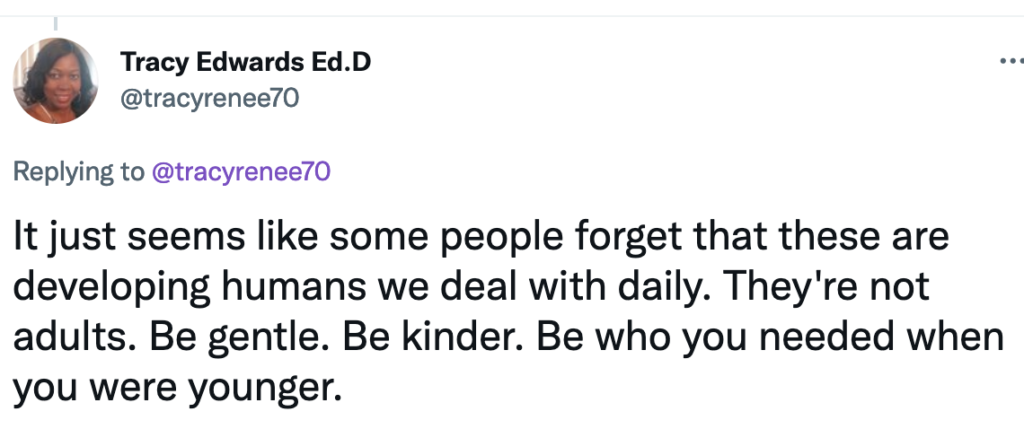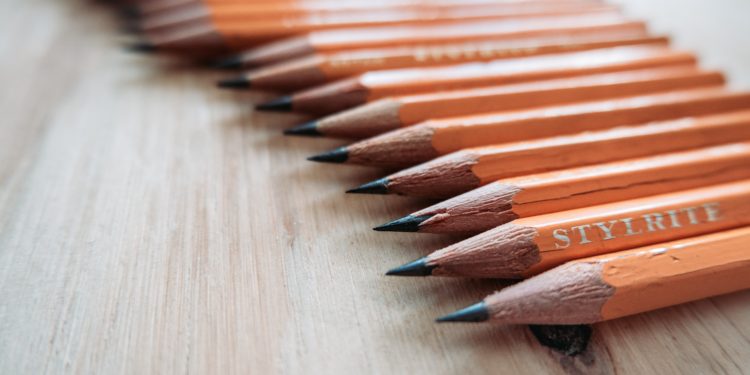It’s not about pencils. It never was. I’m actually used to seeing the “pencil wars” on social media right around this time of year. So when I logged onto Twitter I wasn’t surprised when I came across it again. But I was disappointed. Angry. And Confused. Because our children are living through a still raging pandemic. Children may have been disproportionately impacted by everything from sick family members, housing instability, racism, and an increasingly volatile political environment. Many of these children will be returning to physical school buildings for the first time since this all began. And some of my fellow teachers deem it necessary to start the school year engaging in power struggles…over pencils.
It usually goes something like this: On one side we have teachers who are adamant about not giving students pencils when they forget them. The reasons vary. The kids are lazy, irresponsible and need to be held accountable so that they can function in the real world. On the other side, which I hope is the majority, are teachers who understand that children are still developing and when they struggle for whatever reason our job is to give them tools to help them navigate their experiences, not inflict further harm…over something as insignificant as a pencil.
Here is what I hear some teachers say:
They need to get ready for the real world.
They need to be taught a lesson.
They have to learn to be accountable.
The list goes on.
Here is what kids, especially our most vulnerable ones, often feel & hear:
It doesn’t matter if I don’t learn,
If I don’t have the tools to work, no one will support me.
It’s okay for me to disengage in this space if I don’t have the tools I need.
This isn’t a safe space for me because I can’t ask for help, even if I need it over and over again.
Because It’s not about pencils. It never was. It’s about how we engage in learning spaces together. What if the same student keeps forgetting? Well, maybe this is an opportunity to engage in problem-solving together? When I was a new teacher, I had a penny jar. If a student forgot a pencil, the student or a classmate put a penny in the jar. At some point, we decided that we should cash the jar in once a month and buy new pencils. Then students started putting more than a penny in. They wanted a variety of writing utensils, post-its, notebooks, stickers, and random items at their disposal. It became a community-driven space where yes, students still forgot their supplies sometimes, but they also knew where to find one without disrupting the learning environment. Was it perfect? Of course not. Did I still have to give students pencils and other supplies sometimes? Yes, and I’d do it again. Because not having a pencil or any other supply should not be a reason any student sits in front of you and does nothing. It’s school. They’re there to learn, think, and engage. They should not be denied these basic things because they don’t have a pencil. And they certainly shouldn’t be made to feel embarrassed and humiliated by their teachers for asking.
As I gained more experience as a teacher, I ditched the penny jar altogether. I wasn’t thrilled with the idea of currency being tied to our learning together, even if it was “just a penny”. So the discussion became, how can we solve this problem, of certain students forgetting a pencil every day? The class decided that they would just give their classmates one. They kept their own stashes at their desks and in bins around the classroom. Kids knew where to go for extra pencils, paper, notebooks and anything else they needed. Because in a true learning community, the students understand that we don’t let a few kids disengage over such small things. Learning is a communal act and it is our responsibility collectively.
Let me be clear. No one is suggesting that teachers should be financially responsible for school supplies although many of us take this upon ourselves year after year. No one is saying that teachers should have to dig into their own pockets to provide pencils. There are tons of ways to get around the “pencil problem” if your school is in short supply. Several teachers made suggestions including using all those pencils on the floor of the classrooms, hallways, and school buses at the end of every single day.
However, there is no scenario where withholding a pencil from a student sitting in front of you is an acceptable scenario. None. Is providing school supplies a systemic issue? Of course. Teachers would not need to create wish lists relying on the generosity of strangers to relieve the financial burdens associated with creating and maintaining a learning space. We know that public schools are primarily funded through local property taxes, creating an incredibly inequitable experience for students and a nightmare for schools attempting to meet the needs of our most vulnerable students, year after year. I’ve worked in schools where I was given very few supplies (if any) and had to make do after those ran out. What I’m speaking to is those who have supplies readily available and refuse to give them to students who need them in order to teach them a lesson, punish or humiliate them. It’s unacceptable and we have to do better.
Because it’s not about the pencils. It never was. Not for some of us. Some of us need to deal with our control issues. Some of us are way too invested in wielding power. Some of us need to reckon with the fact that we don’t see our students as fully actualized humans who are still developing. Some of us need to admit that we don’t trust students, see students or hear students. It just seems like some people forget that these are developing humans we deal with daily. They’re not adults. Be gentle. Be kinder. Be who you needed when you were younger.


